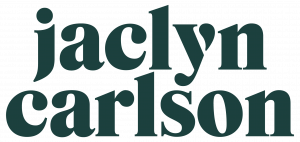The first few hours and days after birth can be an overwhelming mix of love, exhilaration, exhaustion, and uncertainty. As you get to know your newborn and begin your breastfeeding journey, understanding what to expect and how to navigate early challenges can have a significant impact on having a positive breastfeeding experience
For a smooth start, here’s a guide to early breastfeeding success:
Preparing for Breastfeeding Before Birth
Find Lactation Support: Research available lactation support services at your birthing facility before delivery to ensure you have assistance when needed.
Take a Breastfeeding Class: Ensure that breastfeeding is thoroughly covered in antenatal classes, or consider a dedicated breastfeeding course to boost confidence and knowledge.
Consult a Lactation Expert: If you have potential breastfeeding challenges, such as previous breast surgery (implants or reduction), no breast changes during pregnancy, hormonal imbalances (including IVF conception), gestational diabetes, a planned induction, cesarean section, or low milk supply with a previous baby, schedule a consultation with a lactation consultant.
Learn About Colostrum Harvesting: Discuss antenatal expression of colostrum with your midwife or doctor from 36 weeks. Practicing hand expression can be beneficial, and collected colostrum can be frozen for supplementary feeding if necessary. (Note: The amount of colostrum expressed antenatally does not predict postpartum milk supply.)
Understanding Early Breastfeeding Challenges
Some factors can impact breastfeeding initiation, including:
- Premature birth
- Separation at birth due to health complications
- Low blood sugar levels in newborns
- A sleepy baby who struggles to latch
- Jaundice
- Slow milk supply establishment
Being aware of these potential challenges can help you plan ahead and seek support promptly.
Supporting Breastfeeding in the First Hours and Days
- Skin-to-Skin Contact: Request immediate skin-to-skin contact after birth, keeping your baby there until the first feed. This practice enhances bonding, regulates body temperature, and encourages early breastfeeding.
- Breast Crawl & Natural Latching: Learn about a newborn’s innate reflexes to “breast crawl” and explore positions that promote self-attachment, such as reclined or side-lying positions.
- Comfortable Feeding Positions: Choose breastfeeding positions that support your postpartum recovery, especially if you have perineal stitches or a cesarean section.
- Frequent Skin-to-Skin: Keep your baby skin-to-skin as much as possible, as it promotes frequent feeding and helps establish milk supply.
- Hand Expressing & Pumping: If your baby isn’t latching well or requires supplementary feeding, start hand-expressing or pumping within hours after birth and continue every few hours to maintain milk production.
- Alternative Feeding Methods: If your baby needs additional milk, ask about alternatives to bottles, such as a supply line (supplementary nursing system) to encourage breastfeeding.
Managing Common Breastfeeding Challenges
- Painful Feeding or Nipple Damage: Seek immediate help from a lactation consultant to assess your baby’s latch and positioning. Consider using reclined breastfeeding positions for a deeper, more comfortable latch.
- Following Baby’s Feeding Cues: Avoid strict feeding schedules. Babies nurse for both nutrition and comfort, which is essential for development and bonding.
- Choosing the Right Breast Pump: If purchasing a breast pump, ensure it suits your needs and includes correctly sized flanges for maximum efficiency and comfort.
- Sustaining Breastfeeding at Home: If your feeding plan becomes unsustainable, reach out for support to make necessary adjustments that align with your well-being and breastfeeding goals.
Recognising & Managing Mastitis
Mastitis is an inflammatory condition that requires careful management to prevent complications. Follow these key steps:
- Avoid massaging breast lumps (this can worsen inflammation and increase infection risk).
- Apply ice packs to reduce swelling and discomfort.
- Take pain relief such as paracetamol or anti-inflammatory medication if tolerated.
- Continue feeding or pumping as usual, there is no need to “empty” the breasts completely.
- Prioritise rest to support recovery.
Seeking Support for Your Breastfeeding Journey
Every breastfeeding experience is unique. If you face ongoing challenges or find breastfeeding difficult, seek professional lactation support. The right guidance can help you make informed decisions that best support both you and your baby.
By preparing ahead, understanding potential hurdles, and accessing the right support, you can build a fulfilling and successful breastfeeding experience for both you and your little one.
Polly Watson (IBCLC, RN, RM)
Polly works as a Midwifery Specialist in Lactation in a Sydney Hospital, and offers
private in-home breastfeeding consultations across Northern Sydney.
Find out more about Pollly from Nurtured Lactation and contact her here





















